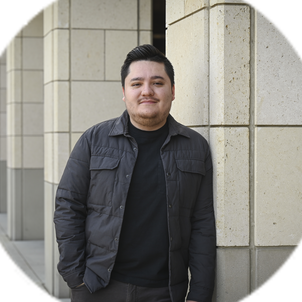Both of my parents are classically trained musicians and my sister is a violinist. I ultimately chose to pursue science as a career, but my experience in music impacted me in ways that continue to show up in my work today, particularly in my teaching. As a performance musician, you’re trained to play in a way that evokes an emotional connection with your audience. Now instead of working to do this in a music hall, I strive to create this connection in the classroom. Of course, I can’t promise you that if you walked into my classroom you wouldn’t see someone who wasn’t engaged, but in general, when things are going well, the connection is palpable.
The problem I get to teach is equally energizing for me. It stems from a question I pondered as a young child, wandering the nooks and crannies of the small farm I grew up on outside of Colorado Springs. I can remember sitting in awe, looking up at a tree and thinking, “How did this tree know how and where to grow its branches?” This curiosity eventually translated into the problem I’m doing research on today, “How do our bodies build themselves?” Just as a tree knows where to put a branch, our cells, absent any top-down organization multiply until they create living, thinking beings. As engineers, if we could understand how to control this process, we’d open up a world of new possibilities in medicine. We could begin to think about re-growing patches of skin for burn victims, building new pieces of bone for reconstructive surgery, wound healing for diabetics or nerve regeneration in the case of neuropathy.
Related spotlights

Adrienne Propp

Lara Weed

